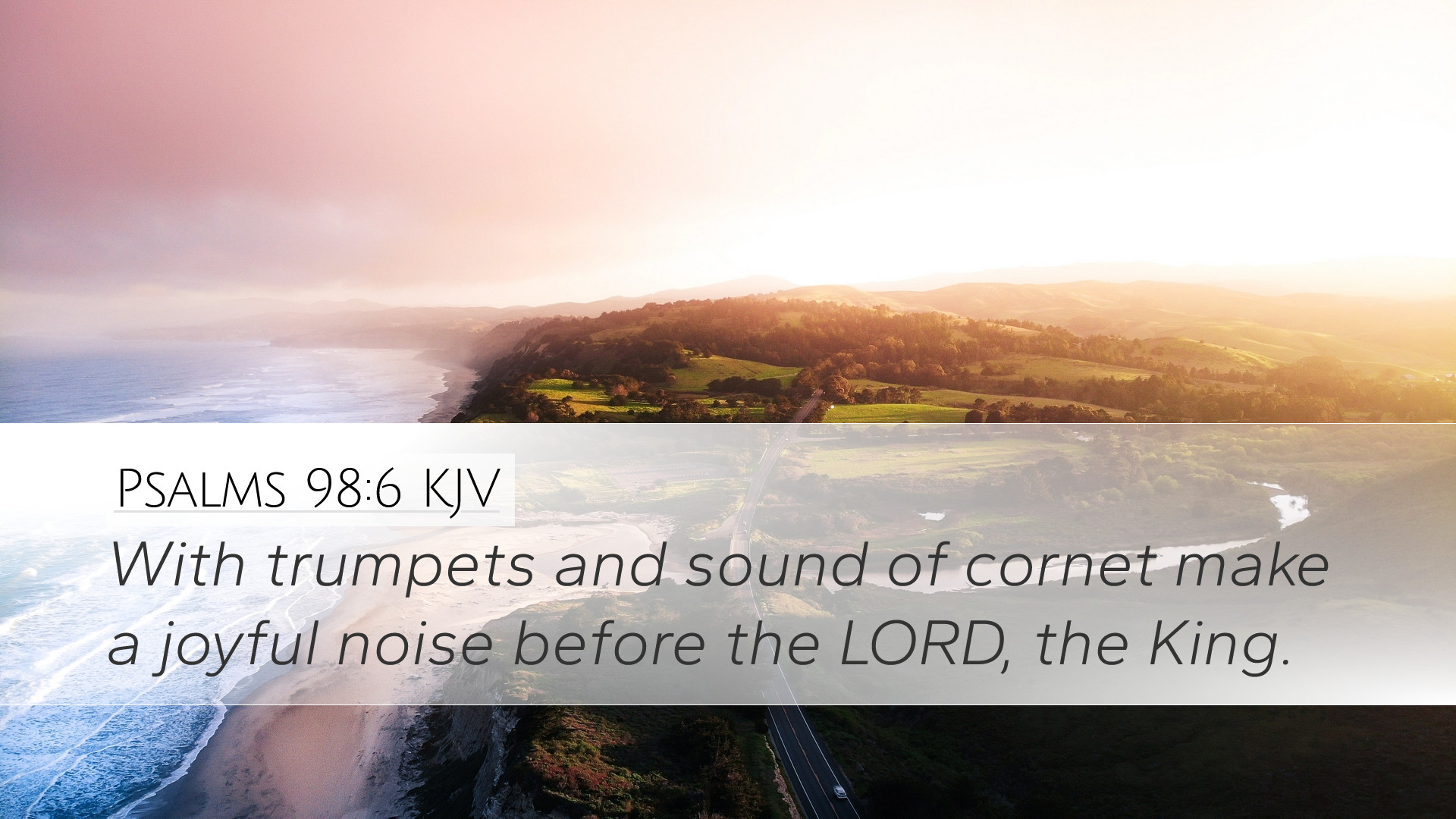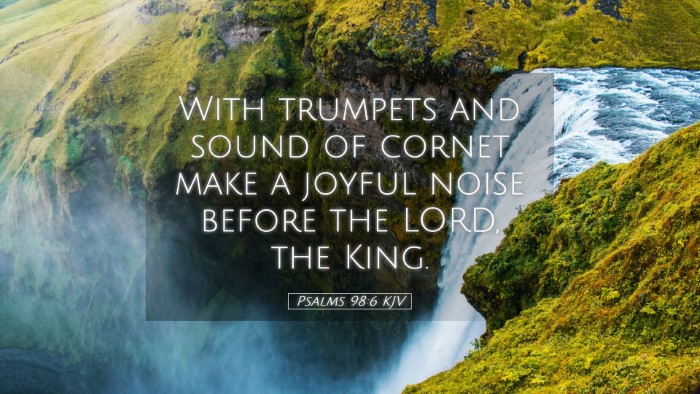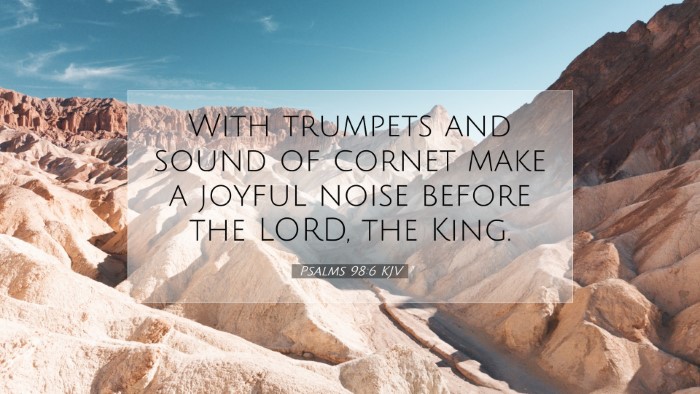Psalms 98:6 - A Commentary
Bible Verse: "With trumpets and the sound of the horn; Make a joyful noise before the King, the Lord." (Psalms 98:6, NKJV)
Introduction
The majestic verse of Psalms 98:6 invites worshippers to engage in an enthusiastic celebration of God's kingship and glory. It calls for an exuberant expression of praise through music and sound. This commentary aims to delve into the significance of this verse, drawing insights from notable public domain commentators including Matthew Henry, Albert Barnes, and Adam Clarke.
Exegesis of the Verse
This verse serves as a grand conclusion to the psalm's proclamation of God's victory and sovereignty. It emphasizes the use of musical instruments, specifically trumpets and horns, underscoring a collective acknowledgment of God's supremacy.
Musical Instruments as Symbols of Praise
In the ancient Near Eastern context, trumpets and horns symbolized not only communal celebration but also served as proclamations of divine presence. The call to make a joyful noise signifies more than mere audible sound; it embodies the heart's exuberance in response to God's glorious nature.
Insights from Matthew Henry
Matthew Henry emphasizes the importance of public praise in this psalm. He highlights that the instruments are not just for show, but serve as a means to engage the community in worship. He notes, "This sound is the voice of the church rejoicing in God and declaring His majesty." Henry's reflection encourages worshippers to gather and celebrate collectively, acknowledging the communal aspect of glorifying God.
Insights from Albert Barnes
Albert Barnes elaborates on the joyful noise mentioned in this verse. He explains that it is a spontaneous outburst of praise resulting from a deep awareness of God's attributes and actions. Barnes argues that this aligns with a broader biblical theme where worship is characterized by joy, emphasizing that "true worship arises from an appreciation of the greatness of God." He encourages believers to participate actively in worship, using their voices and instruments as expressions of a grateful heart.
Insights from Adam Clarke
Adam Clarke reflects on the specific mention of trumpets and horns, noting that these instruments were historically used to signal events of significance. Clarke states that when we worship with such instruments, we are announcing the presence of God and His rightful place as King. He advocates for the use of music in worship, asserting that "music in the church was intended to express joy and to invite God's people into His presence." Clarke's commentary assures believers that their expressions of joy through music are both scriptural and powerful.
The Importance of Joyful Worship
Psalms 98:6 serves as a call to joy. The use of “make a joyful noise” is both an invitation and an exhortation. It suggests that worship is not to be performed with solemnity alone, but with an exuberance that reflects an understanding of God’s greatness.
Community Aspect of Worship
The verse emphasizes community worship, showing that praise is to be a shared experience. This communal dimension of worship reflects the body of Christ coming together, united in proclamation and love for their King. This signifies that worship is not just an individual act, but a collective expression of faith, belonging, and communal identity.
Theological Implications
- Divine Kingship: The acknowledgment of God as King implies His sovereignty over creation. This title signifies His authority, power, and the reverence He commands.
- Call to Celebration: The exclamation to create a joyful noise indicates that our response to God’s revelation should be one of celebration, reflecting an understanding of His grace and mercy.
- Role of Worship: Worship serves not only as a personal expression but as an avenue for the community to respond to God collectively, enriching the faith experience of individuals.
Conclusion
Psalms 98:6 invites us into the heart of worship—a heartfelt, joyful, and collective response to God’s lordship. As we engage in our worship practices, let us remember the significance of our expressions, whether musically or verbally. In light of the insights from Henry, Barnes, and Clarke, we understand that our worship must be vibrant, communal, and deeply rooted in an appreciation for God's majesty as our King.
Let this verse resonate with us as we gather in worship, reminding us that our voices—alongside our instruments—echo the profound truth of God's position in our lives and in the world.


